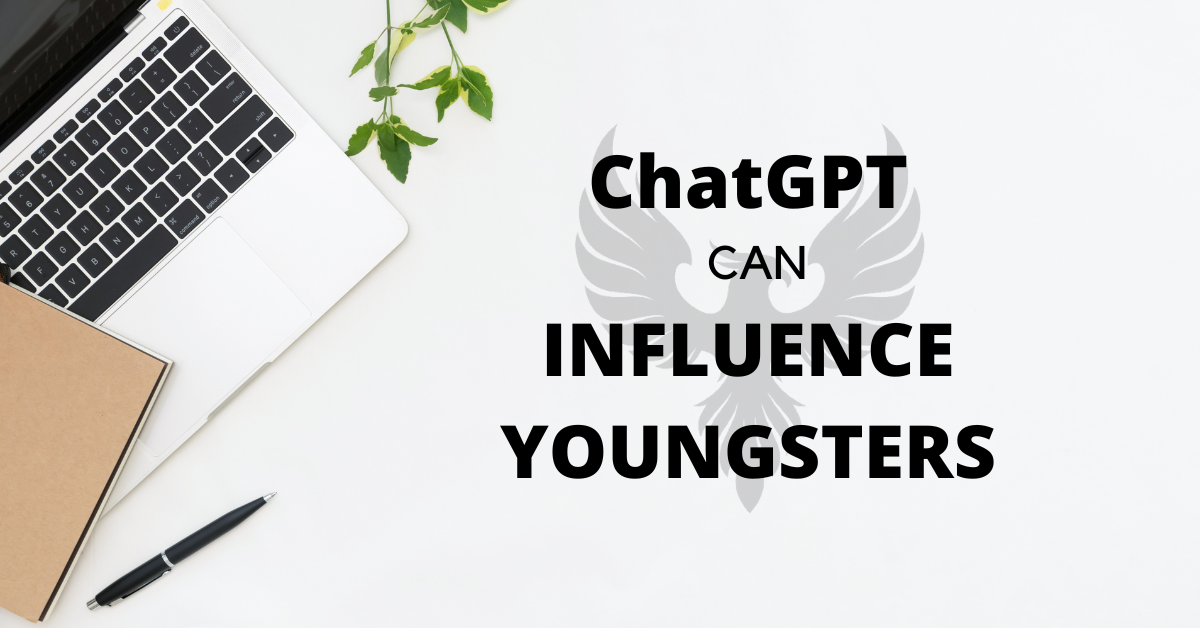As a language model trained by OpenAI, ChatGPT has the potential to influence and impact youngsters in numerous ways. In this blog post, we will explore how ChatGPT can influence the younger generation and why it is crucial to utilize this technology for their benefit.
As we know ChatGPT can serve as a reliable and accessible source of information for youngsters. With the advent of technology, the younger generation has access to a vast amount of information, but it is not always easy to distinguish between reliable and unreliable sources. ChatGPT, on the other hand, is a machine learning model that has been trained on a massive amount of data, making it a trustworthy source of information. It can provide accurate and reliable answers to queries on a wide range of topics, including science, technology, history, and more. By utilizing ChatGPT, youngsters can get access to reliable information and broaden their knowledge base.
ChatGPT can provide personalized learning experiences for students. With the COVID-19 pandemic disrupting traditional education systems, many students have had to shift to online learning. However, online learning can be challenging as it lacks the personalized touch of traditional classroom teaching. ChatGPT can fill this gap by providing personalized learning experiences for students. By using ChatGPT, students can ask questions related to their course materials, and the model can provide customized answers that cater to their learning needs. This way, ChatGPT can help students overcome the challenges of online learning and enhance their academic performance.

Also, ChatGPT can help youngsters improve their communication skills. In today’s digital age, communication skills are more critical than ever before. However, with the advent of social media and instant messaging, many youngsters have lost the ability to communicate effectively. ChatGPT can help bridge this gap by engaging in conversations with youngsters and improving their communication skills. By interacting with ChatGPT, youngsters can learn how to express themselves better, ask questions, and engage in meaningful conversations.
We can say it can serve as a mental health support tool for youngsters. Mental health has become a significant concern for the younger generation, with many facing anxiety, depression, and other mental health issues. ChatGPT can help provide support to these individuals by engaging in conversations that can alleviate their stress and anxiety. Additionally, ChatGPT can help in identifying individuals who may be at risk of developing mental health issues by analyzing their language patterns and providing early intervention.
Lastly, ChatGPT can help create a more inclusive society. In recent times, there has been an increased emphasis on creating a more inclusive society where everyone feels valued and accepted. However, achieving this goal can be challenging, given the diverse cultural and linguistic backgrounds of people. ChatGPT can help bridge this gap by engaging in conversations with individuals from different backgrounds and cultures. By doing so, ChatGPT can promote understanding and respect for diversity, ultimately leading to a more inclusive society.
Conclusion
ChatGPT has the potential to influence and impact youngsters in various ways. By providing reliable information, personalized learning experiences, improving communication skills, supporting mental health, and promoting inclusivity, ChatGPT can play a crucial role in the development and growth of the younger generation. However, it is essential to use this technology responsibly, ensuring that it is used to benefit individuals and society as a whole. By doing so, we can harness the power of ChatGPT and create a better future for our younger generation.
Comment below and do let me know your thoughts about this.
